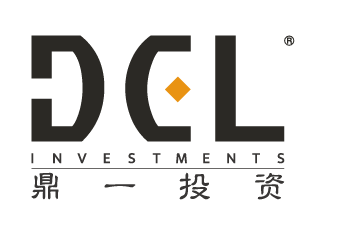by DCL
Recently, IFENG financial news invited Selina Zheng, the guest of Real Estate Finance forum, to share her opinions on the me anarket structurd future trend of China’s distressed asset management industry.
When talking about the industry structure, Selina Zheng said that after the COVID-19, the disposal of domestic distressed credit assets is more active than ever, and the sourcing channels are more diversified, so the next few years will be a good window for investment in distressed assets.
IFENG: In recent years, some real estate group enterprises have begun to participate in regional AMCs. How do you like their future development and what are the pros and cons?
Selina Zheng: We are not surprised by the participation of real estate companies. There is some logic. First of all, real estate enterprises can solve the complex credit problems in the M&A of non-performing assets with the help of AMC, and source more channels to buy lands, which is difficult and expensive to get at present; Secondly, they could learn from the AMCs in the M&A of distressed assets; Finally, in the disposal of distressed assets in real estate development, the two parties can also benefit each other and jointly develop and revitalize the properties.
At the same time, regional AMCs with limited land-development ability could promote their land development projects with the help of experienced real estate enterprises.
Therefore, the admission of real estate developer into local AMCs presents the potential for both sides to complement each other’s advantages.
Therefore, the admission of real estate developer into local AMCs presents the potential for both sides to complement each other’s advantages.
Selina Zheng: The five major state-owned banks mainly dispose of distressed assets by means of agreement transfer and independent liquidation. Therefore, they are our significant partners by providing us the largest supply of distressed assets.
And in terms of the total transaction volume, the Big-four AMCs still occupy a dominant position considering the total amount of domestic distressed assets. As licensed financial institutions with business outlets all over the country, they have certain advantages in obtaining all kinds of distressed assets directly from banks. In addition, the low cost and the large scale of capital give them effortless competencies in volume. As a market-oriented private equity fund manager, DCL has a different business model from the AMCs. That means we pay more attention to deal sourcing, refined operation, diversified exit methods and incentive mechanism design. In the deep restructuring and operation of some large-scale distressed real assets or the equities of distressed enterprises, there is also a great possibility for us to conduct extensive corporation with the four AMCs and other financial institutions.
IFENG: Could you give your peers some suggestions on how to grasp the opportunities of the distressed assets investment from a macro perspective in economy and market structure?
Selina Zheng: In recent years, more and more people have participated in the investment of distressed assets, and the ecosystem of the industry has become more and more comprehensive. In face of the emerging opportunities and challenges in the market, if we can choose to be a craftsman to concentrate on doing fine work in stubborn ways, we will have the opportunity to overcome short-term fluctuations and gain hefty profits.
IFENG: What are the investment and development philosophy of DCL Investments at present?
Selina Zheng: Up to now, DCL has successfully operated three large-scale institutional funds with a total commitment of nearly 10 billion RMB, and the fourth RMB fund is about to finish its first close. In addition, our investment philosophy has also evolved to the 2.0 mode, which is taking the batch purchasing of traditional NPL portfolio as the starting point, and then seizing the special opportunities to obtain high-quality core assets at discount prices, such as real estate properties, ships and equities. After the value-adding operation of the assets, we will choose a good time to exit so as to maximize their value.
To sum up, DCL would adopt the investment strategy of acquiring assets with high liquidity and special situation opportunities. In this way, we will construct an counter-cyclical asset portfolio to achieve both stable periodic cash flow and long-term excess returns.
In terms of development, with the continuous expansion of the market, DCL, as an active participant in the field, strives to build itself into a platform for investment, restructuring and operation of distressed assets with global influence by 2030. We also hope to cooperate better with all parties in the ecosystem, and play the active role to achieve win-win results.

